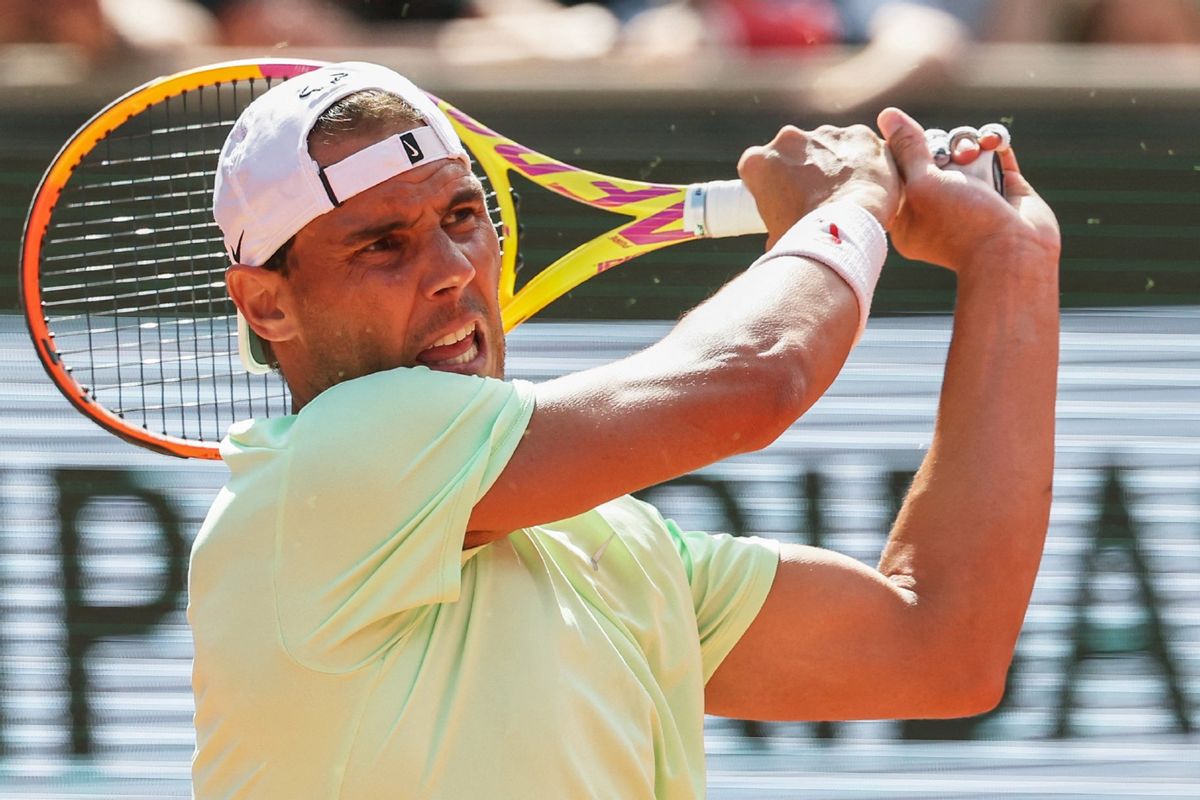After tennis, Rafael Nadal can look forward to spending his days in sunny Mallorca with the people and things that he loves. There's his fishing gear, which he brings to the shore to savor "the calm and tranquility, the beauty of the sea." There's his wife María Francisca, who he met in 2005, the same year he won his first French Open. And there's his one-year-old son Rafael (Jr.), who carries a miniature racket and a patrilineal frown wherever he goes. This life seems far, far away from the life he's had for more than twenty years—one that has carried the aging Nadal through punishing cycles of elite competitive tennis, and to the extreme reaches of ecstasy and despair.
But to enjoy the promise of a new life, Nadal has to be reborn, and in order to be reborn, Nadal first has to die.
For Nadal, the red clay of the French Open, his favored killing ground, is the perfect place to die. After falling to Alex de Minaur in an early round at Barcelona in April, Nadal seemed to recognize that it was nearly time. "It wasn't today that I had to leave everything and die; in Paris, let it be what God wants," he said.
That time is now here, in the last week of May, during a tournament that he has won 14 times in a sport where most careers don't last 14 years. In the last two decades, the French Open has become akin to a blood ritual where 128 of the world's best tennis players fight for the honor of eventually getting flattened by Nadal's heavy, destructive topspin forehands (or the mere threat of one.) Only two players have ever survived against him there: Novak Djokovic in 2015 and 2021, and a white-hot Robin Söderling in 2009. It is because Nadal has won 112 matches at the French Open that those three losses, all of which were avenged, stand out so prominently.
Nadal is old, by tennis standards. He has been for at least five years. And he is carrying hip and abdominal injuries that have slowed him down since 2022 and might spell the end of his career in 2024. After a medical recovery period that left him sidelined from most tournaments, Nadal is entering his potentially last French Open as an unseeded player. For the first time in a long while, his victory does not feel inevitable; he might not even make it past the first round.
Want a daily wrap-up of all the news and commentary Salon has to offer? Subscribe to our morning newsletter, Crash Course.
For his opening foray, Nadal drew a meeting with world no. 4 Alexander Zverev, a man 11 years younger than Nadal and whose aggressive, penetrating baseline power was once marred by a tendency to sink his serves into the net. Not anymore—since recovering from a rolled ankle in 2022 (that he sustained while battling Nadal to the precipice), he has found new form, blasting 90% of his first serves in during a successful championship run at the Rome Masters 1000 tournament last week. It's an ominous sign for Nadal, who hasn't beaten a top-10 player yet this year.
But Zverev's ranking isn't the only reason why tennis watchers fell to their knees at the supermarket. The German stands accused of domestic abuse against his ex-girlfriend, and his lack of contrition only confirmed some people's views that he had always been arrogant, hypocritical, and violent. When Netflix decided to feature Zverev in their tennis docuseries "Break Point" without mentioning the abuse case, critics accused the producers of whitewashing. If Nadal was going to symbolically pass the torch to anyone at the end of his career, many would wish it was "anyone but Zverev."
Nadal, on the other hand, is generally beloved not only for his numerical achievements, but also an endearing and authentic personality that has proven more than generous to meme-makers. His exhilarating, nerve-scorching playing style, underrated craft, and indomitable willpower has bound his fate to the hearts of millions, many of whom can signpost their own lives with the victories and defeats they witnessed him endure, and endured with him. The Spaniard has some controversies of his own, but in the last hours before what might be his final hunt on Philippe-Chatrier, all seems forgiven, for now.
Though Nadal sees the end in sight, he can't be sure whether it will happen on Monday, or maybe another day (or even, remotely, next year.) Maybe he'll perform a miracle and keep going into the second week. Injuries didn't prevent him from storming through the 2022 French Open on one foot. But for now, the only world that matters is the one he'll share with Alexander Zverev and a crowd of spectators who will be firmly in his corner.
"If, if, if..." Nadal once said. "Doesn't exist."
Read more
about this topic
- Coco Gauff: The rising teenage tennis star transforms into a powerhouse in her first U.S. open final
- Tennis bad boy or perfectionist? Showtime’s “McEnroe” is a candid exploration of a complex star
- "Citizen Ashe" gives a spry look at the evolution of a legendary tennis great on and off the court
- Naomi Osaka stands up for all athletes by refusing to be exploited at the cost of her mental health



Shares